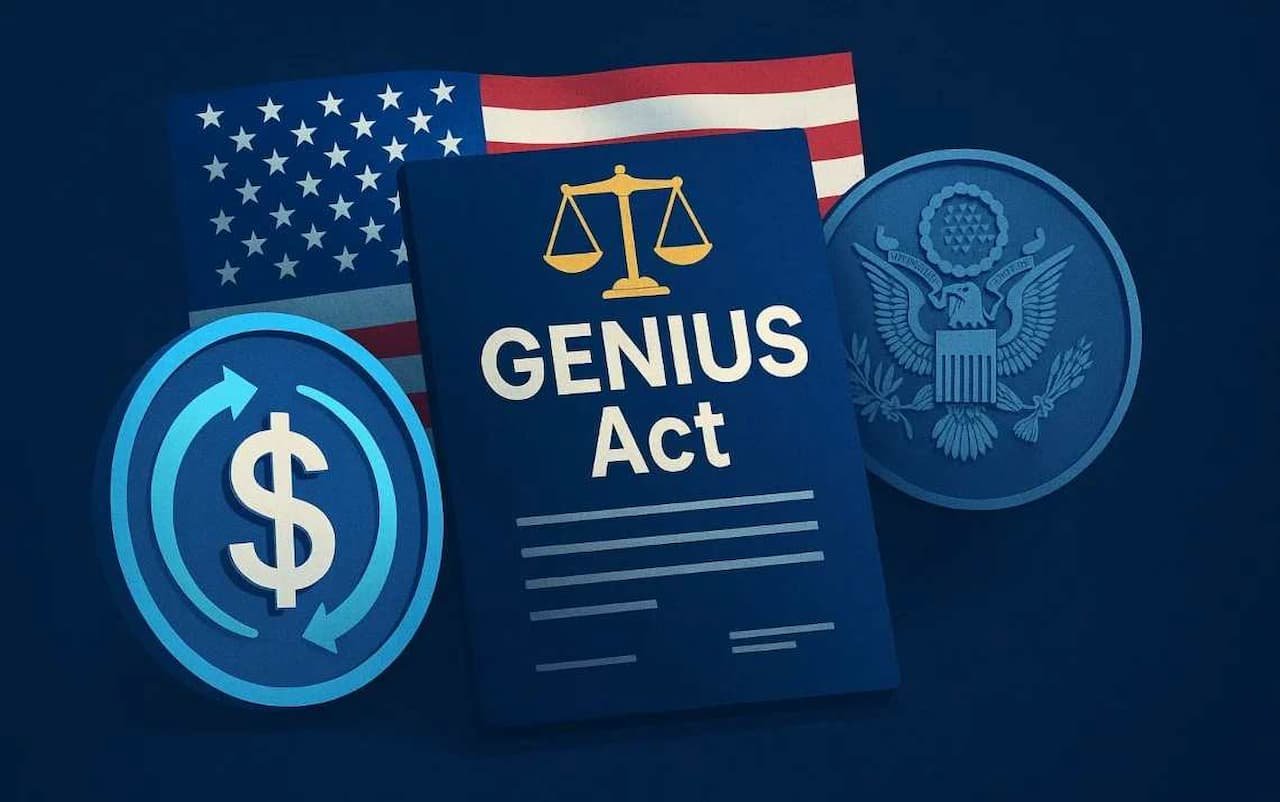To establish a clear regulatory path for stablecoins, a new legislative proposal known as the GENIUS Act—short for Guaranteeing and Enabling National Investment in Unleashing Stablecoins Act—was introduced in the United States. The bill, which has the support of Republican lawmakers, attempts to promote innovation while tackling important issues related to financial stability, transparency, and consumer protection.
Simply put, the GENIUS Act may have the following effects on stablecoins:
1. Legal Approval for Issuers of Stablecoins
Establishing federal recognition for stablecoin issuers is one of the main objectives of the GENIUS Act. Under a clear and simplified regulatory framework, this would enable businesses to lawfully offer USD-backed stablecoins, such as USDC or PayPal USD, lowering uncertainty and luring new businesses to the market.
Additionally, it offers recommendations for managing reserves, guaranteeing that every stablecoin is 1:1 backed by reliable assets such as cash or short-term U.S. treasuries. This is intended to lessen the possibility of collapses like the 2022 TerraUSD crash.
2. The Role of States Is Greater
As long as stablecoin companies adhere to federal regulations, the bill grants state regulators additional power to license and oversee them at the state level. With this hybrid strategy, smaller or up-and-coming fintech businesses can innovate more easily without being prevented from doing so by unduly onerous federal regulations.
3. Algorithmic Stablecoins are currently prohibited.
Algorithmic stablecoins, which rely on code rather than reserves to maintain their value, are expressly forbidden by the GENIUS Act. To foster trust and avoid instability, lawmakers would like to start by concentrating on asset-backed models. This would temporarily prevent the launch of any new Terra-style coins in the US.
4. The Need for Auditing and Transparency
Issuers of stablecoins would have to submit to independent audits, disclose information to users, and publish proof of reserves regularly. Customers would feel more confident as a result, and regulators and conventional investors would view stablecoins as more reliable.
5. An Uptick in USD-Backed Crypto
As more reliable, regulated USD-backed stablecoins flood the market, the GENIUS Act, if passed, could make the US dollar the dominant currency in the digital economy. This would promote innovation in blockchain-based finance, DeFi, and payments while assisting the US in preserving its financial clout on a worldwide scale.
In conclusion, the GENIUS Act aims to provide stablecoins with a legitimate, protected position in the US financial system. Growth is possible, but there are robust safeguards in place to stop another cryptocurrency meltdown. The bill represents a shift in the US’s perception of digital dollars, even though it still needs to pass Congress.
Also read: Hyperliquid Hits $5.48M Daily Revenue, Setting New DEX Record
